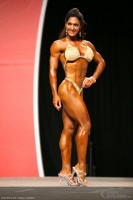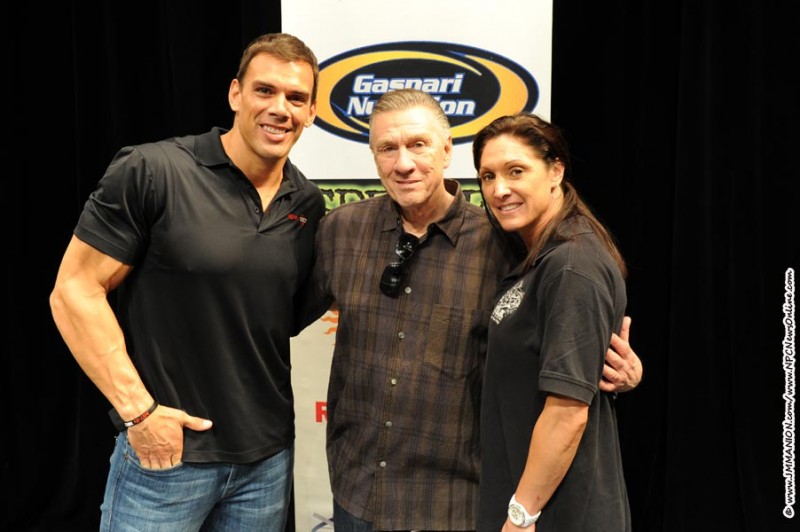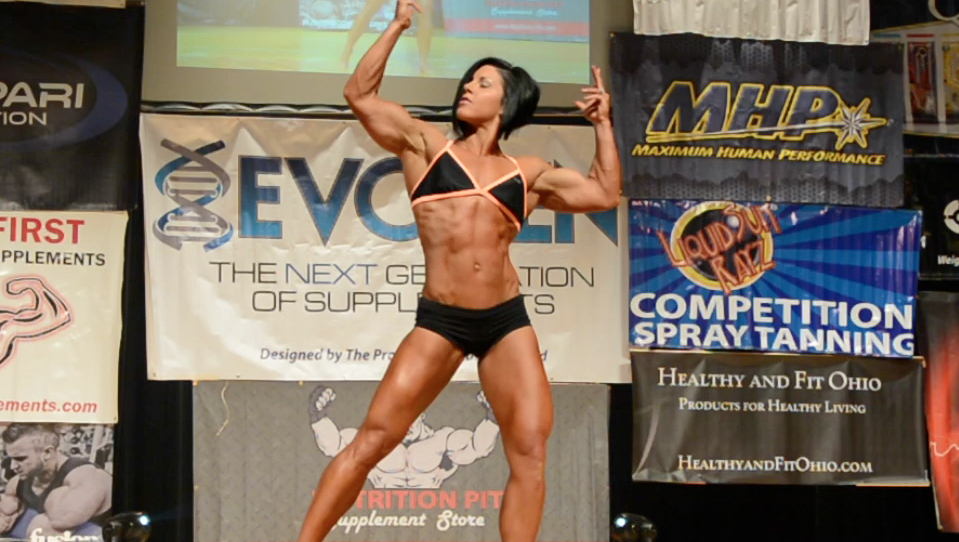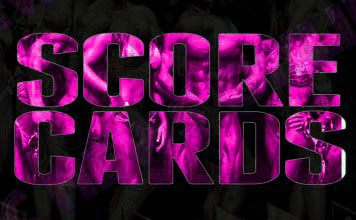
Give Your Body A Break…Before It Breaks Down: Rest, Recovery and Hormone Balance
Tracey C. Greenwood, Ph.D , IFBB Pro
 Most athletes know that in order to perform at top performance the body needs rest, but many still over-train and feel guilty when they take a day off. The proper amount of sleep and rest actually maintains normal hormone levels plus repairs and strengthens the body.
Most athletes know that in order to perform at top performance the body needs rest, but many still over-train and feel guilty when they take a day off. The proper amount of sleep and rest actually maintains normal hormone levels plus repairs and strengthens the body.
Those who do not take time to rest the muscles between workouts, and who continuously over-train through soreness, fatigue and injury can actually weaken the strongest athletes. Rest days are critical to sports performance for a variety of reasons – some are physiological and some are psychological. Unfortunately, many of us over-train while preparing for a competition. I am guilty of it myself when I was training for IFBB Fitness Competitions, especially training through injuries. The most common warning signs and symptoms of Overtraining Syndrome are:
- Fatigue and lack of energy
- General aches and pains
- Pain in muscles and joints
- Insomnia
- Headaches
- Decreased Immunity (increased number of colds, and sore throats)
- Decrease in training capacity / intensity
- Moodiness and irritability
- Difficulty sleeping
- Depression
- Loss of enthusiasm
- Decreased appetite
- Increased incidence of injuries
- A compulsive need to exercise
Sleep Deprivation and Imbalanced Hormones Can Hinder Sports Performance
If an athlete is suffering from over-training, there is a good chance that they are consistently getting inadequate sleep, which can result in subtle changes in hormone levels, particularly those related to stress, muscle recovery and mood. Long-term, this can have a detrimental impact on performance.
Research indicates that over-training and sleep deprivation can lead to increased levels of cortisol (a stress hormone), as well as decreased activity of human growth hormone (HGH) which is active during tissue repair. Deficiencies in HGH can cause weight gain, loss of muscle mass and lack of energy that can adversely effect performance and training. Since the majority of growth hormone secretion occurs at night during deep sleep, it is important to get a full 7-9 hours of good sound sleep. Also, your last meal of the day should contain a high-protein source and possible a low glycemic carbohydrate to help enhance growth hormone secretion.
Elevated levels of cortisol caused by over-training and an inadequate amount of sleep, may interfere with tissue repair and growth. Cortisol is a stress hormone that is produced in the adrenal glands of your kidneys, and its role is to mobilize stored carbohydrates, catabolize proteins into glucose, and to mobilize stored fats. When cortisol levels remain elevated for a prolonged period of time, memory, metabolism and mental function are impaired.
Chronically elevated levels of cortisol have several ergolytic effects for athletes. Ergolytic effects will greatly impair sports performance. Elevated cortisol levels lead to a catabolic state where muscle is broken down, and fat is stored. Predominantly, the fat that is increased will be central adiposity (belly fat). These effects are intensified when an athlete is carbohydrate depleted. Supplying adequate carbohydrates during training protects against elevated cortisol levels. Even low glycemic carbohydrates can provide fuel for an athlete’s body to do work. The human brain prefers glucose for fuel to function, and when your body is depleted of that particular fuel, it will cannibalize lean muscular tissue to provide glucose for the brain.
Although this is easier said than done in most athletes, It would appear that your body will experience less stress from training, over-training and competing if it has the rest and nutritional building blocks it needs to repair and regenerate.
Davis, M. & Brown, A. (2001). Carbohydrates, Hormones and Endurance Performance. Gatorade Sports Science Institute® 2001; 14 (1).
Hackney, A.C. & Koltun, K.J. (2012). The immune system and overtraining in athletes: clinical implications. Acta Clin Croat; 51(4):633-41.
Hug M, Mullis PE, Vogt M, Ventura N, Hoppeler H. (2003). Training modalities: over-reaching and over-training in athletes, including a study of the role of hormones. Best Pract Res Clin Endocrinol Metab; 17(2): 191-209.
Muiila, I. Padilla, S, Pyne, D & Busso, T. (2004). Physiological changes associated with the pre-event taper in athletes. Sports Med; 34(13):891-927.
McMurray, R. & Hackney, A. (2005). Interactions of metabolic hormones, adipose tissue and exercise. Sports Medicine, 35(5): 393-412.
Sumithran, P., et al. (2011). Long-term persistence of hormonal adaptations to weight loss. The New England Journal of Medicine, 365:1597-1604.
Taverniers J, Van Ruysseveldt J, Smeets T, von Grumbkow J.Stress. (2010). High-intensity stress elicits robust cortisol increases, and impairs working memory and visuo-spatial declarative memory in Special Forces candidates: A field experiment; 13(4):323-33.
Urhausen, A, Gabriel, H. & Kindermann, W. (1995). Blood hormones as markers of training stress and overtraining. Sports Med; 20( 4):251-76.
Urhausen, A & Kindermann, W. (2002). Diagnosis of overtraining: what tools do we have? Sports Med; 32 (2):95-102.
 Dr. Tracey Greenwood
Dr. Tracey Greenwood
Associate Professor of Exercise Science; Eastern University
IFBB Fitness Pro
9 x IFBB Champion
Doctorate Of Philosophy, Kinesiology, January 2007
Temple University, Philadelphia, Pennsylvania
Master of Science, Health Education, May 1996
Saint Joseph’s University, Philadelphia, Pennsylvania
Bachelor of Science, Exercise Physiology, January 1991
University of Delaware, Newark, Delaware
NPC PROMOTER
NPC Philadelphia Bodybuilding & Physique Championships and the Tracey Greenwood Fitness, Figure & Bikini Classic
NPC Delaware States / De Open Bodybuilding, Physique, Fitness, Figure & Bikini Classic
Certified American College of Sports Medicine :
Clinical Exercise Specialist and
Cancer Specialist
Always consult your doctor before beginning this or any training or diet/supplement program.
It is important to check with your healthcare practitioner before beginning any diet or exercise program.
These programs may not be appropriate for all individuals.
The content we provide is to help you broaden your understanding and knowledge of the health and fitness topics discussed on our website. This information should not be considered to be exhaustive of a particular topic, and should never be used in place of a visit or call to, consultation with or advice from your physician or other health care provider. We strongly recommend that you consult a health care professional prior to using any information or advice contained on this website that sets forth, illustrates, or suggests a particular diet, fitness program, workout regimen or activity. Further, we do not recommend the self-management of health problems because of the advice or recommendations contained in this magazine. You should never disregard medical advice or delay in seeking it because of something you have read on this website.
We do not assume any liability for injuries that may occur while using any information contained on this website, regardless of whether a doctor was consulted.



